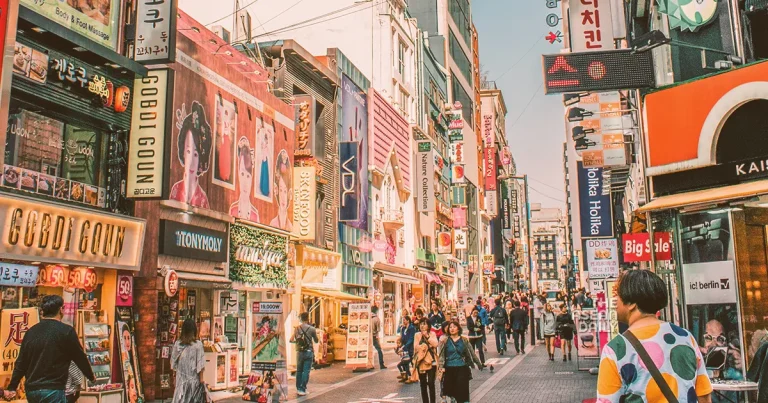1-11-2023 (BANGKOK) The hashtag #banKoreatravel has been making waves on the X platform, garnering over a million posts during the past weekend. This trending topic should not be overlooked by tourism organizations, as both tourists and tour operators have suffered significant losses in recent years.
According to data from September, Thailand ranked sixth in terms of the number of visitors to South Korea, with a total of 269,347 Thai tourists. The top five countries were Japan, China, the United States, Taiwan, and Vietnam.
The peak year for Thai outbound travel to South Korea was 2019, when 571,610 Thai visitors were recorded, as reported by the Korea Tourism Organization (KTO).
Charoen Wangananont, president of the Thai Travel Agents Association, expressed the KTO’s desire to bring the Thai market back to its 2019 levels this year. However, he acknowledged that achieving this goal could be challenging due to growing concerns among Thai travelers.
On X (formerly Twitter), numerous users have been discussing the risks associated with being denied entry to South Korea, sharing their personal experiences during the immigration process. Some users have even recounted being turned away and sent back to Thailand.
Many Thai users have compared South Korea to other countries that offer visa-free travel for Thais, such as Japan and Taiwan. They expressed a preference for the latter two destinations, citing the fear of losing travel expenses and wasting time in the event of being denied entry, which could ruin their carefully planned vacations.
Thai users have also called on both the Thai and South Korean governments to address the issue of illegal labor exports, which is believed to be one of the primary reasons for tourists being denied entry.
Prime Minister Srettha Thavisin stated on Tuesday that the government would assign relevant authorities to investigate this matter.
Mr. Charoen acknowledged the public outrage, as tourists, whether traveling independently or in groups, suffer both financially and temporally when denied entry, often without any explanation.
Outbound tour operators have also been severely affected, with losses ranging from 70,000 to 80,000 baht per group of 40 guests. Some groups have faced random denials of entry.
In such cases, travel agents have only been able to collect partial payments, such as airfare and the K-ETA registration fee, and have had to refund the remaining amount to customers.
However, Mr. Charoen also recognized the need for South Korea’s strict screening process. Following the pandemic, a significant number of Thais entered the country to work illegally on rural farms, which often prefer Thai workers due to their willingness to accept lower wages compared to local labor.
“Thais who lost their jobs during the pandemic flocked to South Korea after the borders reopened. At times, the number of illegal workers entering under the visa-free privilege exceeded the number of genuine tourists,” Mr. Charoen explained.
Furthermore, some individuals have misused the visa-free privilege, such as singers or YouTubers who plan to perform or create content for their channels in South Korea. These activities require the appropriate visa, leading to stricter scrutiny during the immigration process, which also affects legitimate tourists.
“This issue needs to be addressed by both Thailand and South Korea. They should work together to dismantle corrupt networks, particularly those involved in facilitating illegal labor,” Mr. Charoen emphasized.
He also highlighted Taiwan as an example, where a significant number of legal workers from Thailand are registered through a clear process. This ensures that tourists need not worry about being denied entry.




